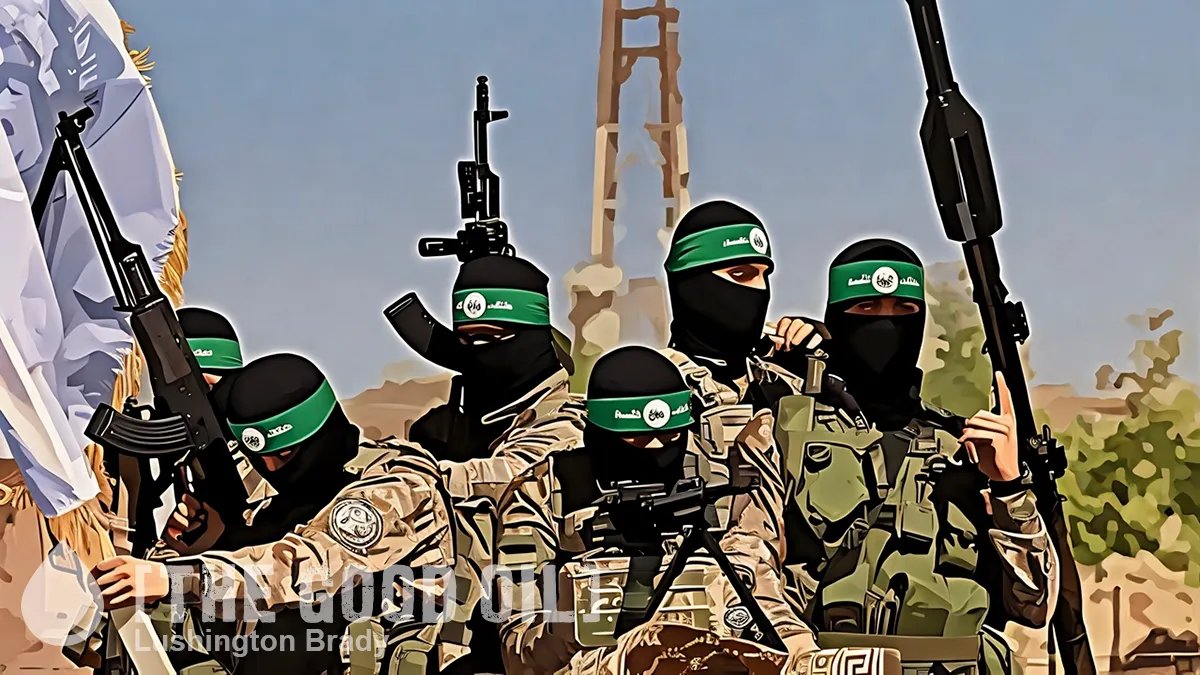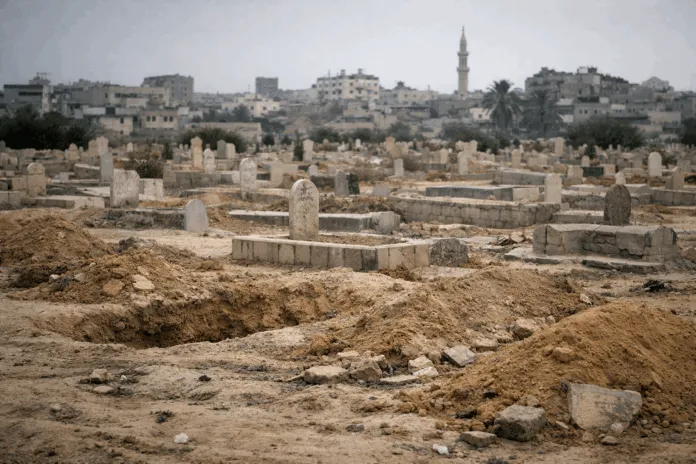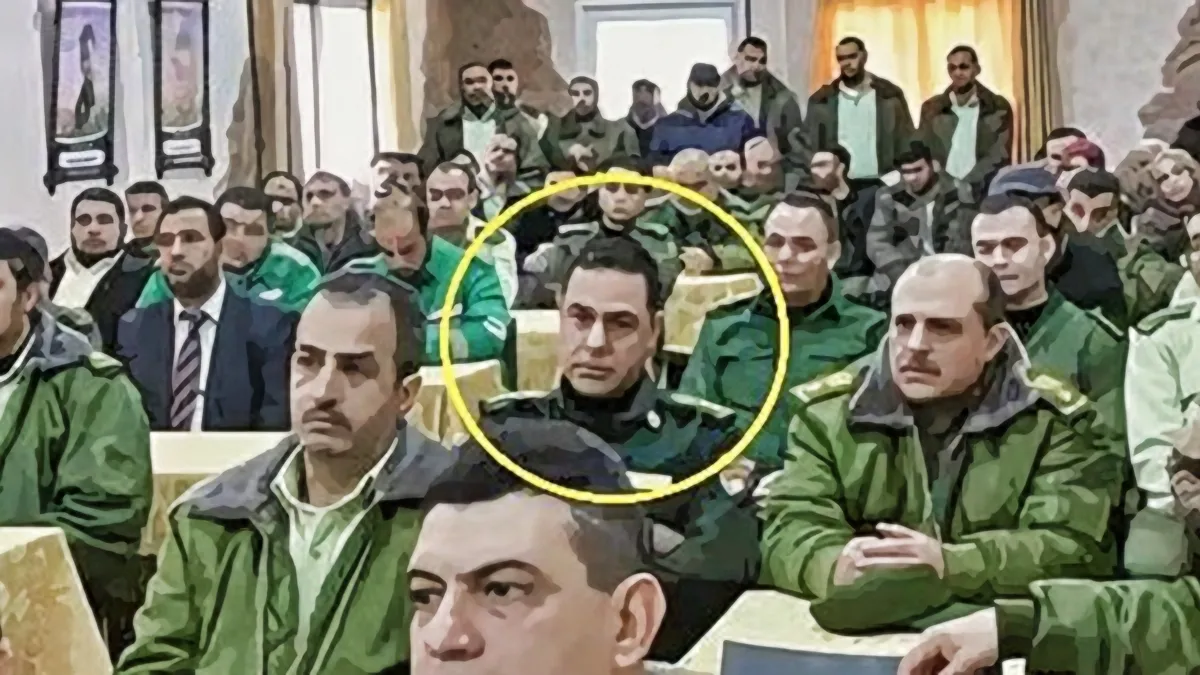Table of Contents
What happened: On Saturday night, the IDF recovered the bodies of six murdered hostages who had been held by Hamas since 7th October from a tunnel under Rafah in the southern Gaza Strip.
- The six whose bodies were recovered were Hersh Goldberg-Polin (23), Eden Yerushalmi (24), Ori Danino (25), Almog Sarusi (27), Alex Lobanov (33), and Carmel Gat (40).
- According to autopsies, they were killed 48–72 hours before their bodies were recovered. The autopsies also indicated multiple shots at close range as the cause of death indicating they were executed.
- Channel 12 News has reported that security officials have suggested they were executed as Hamas feared that Farhan al-Qadi who was rescued days earlier would divulge details about where the other captives were being held.
- US President Joe Biden said he was “devastated and outraged” to learn of the captives’ deaths, while praising Hersh Goldberg-Polin’s parents who had recently spoken at the Democratic National Convention.
- Prime Minister Starmer wrote on Twitter/X that he was: “completely shocked at the horrific and senseless killing of six hostages in Gaza by Hamas” adding that “Hamas must release all the hostages now, and a ceasefire deal must be agreed by all sides immediately to end the suffering.”
- Foreign Secretary Lammy, took a similar line, writing that the “UK condemns Hamas’ appalling murder of six innocent hostages in Gaza in the strongest terms.” In addition to offering his deepest condolences to those grieving, Lammy added that “Hamas must release all the hostages immediately, and all sides must accept the deal on the table to end this war.”
- Hamas politburo member, Izzat al-Rishq, blamed the hostages’ deaths on Israel and the US, because Israel had not agreed to a ceasefire deal. He made no comments about their cause of death and did not respond to Israeli claims they had been executed.
- The Hostages and Missing Families Forum have responded angrily, saying those hostages would still be alive if the government led by Prime Minister Netanyahu had reached a deal with Hamas for their release.
- An estimated 500,000 people attended demonstrations, at 40 locations across the country organised by the Forum, with 300,000 in Tel Aviv alone. At one point, protestors blocked the Ayalon Highway.
- Yesterday, the Histadrut Labor Federation (Israel’s main trade union) announced a general strike in response to the government’s failure to secure the release of the hostages. Histadrut chief, Arnon Bar-David, said that “a deal is more important than anything else”.
- The general strike began at 6.00 this morning and is also being supported by the Israel Business Forum, which represents most private-sector workers from 200 of the country’s largest companies.
- Ben Gurion Airport has partially joined the strike, with flights not taking off for most of the morning.
- In the West Bank, three Israeli police officers were killed in a shooting attack near the Palestinian city of Tarqumiyah yesterday. The gunman was later identified as a former member of the Palestinian Authority’s Presidential Guard and was killed by Israeli special forces in Hebron later that day.
- In the north, two Israeli soldiers and one civilian were injured when Hezbollah fired an anti-tank missile at the community of Kfar Yuval. Thirty rockets were also launched towards Misgav Am and Matat, but these did not cause any injuries. The IDF has responded with airstrikes on Hezbollah rocket launchers in Ayta ash-Shab and Bint Jbeil, as well as buildings used by the terror group in Beit Lif, Taybeh and Odaisseh.
Context: 101 hostages remain in captivity for 332 days. The fact that these six hostages survived for so long, only to have been killed in recent days has shaken Israeli society.
- Compounding the suffering is the fact that three or four of the dead were due to be released in the first (humanitarian) phase of a hostage-prisoner exchange – Goldberg-Polin due to his amputated arm and the female prisoners Yerushalmi and Gat (Lobanov as a dual Israeli-Russian citizen was also rumoured to be released).
- The deaths come very soon after a reported shouting exchange between PM Netanyahu and Defence Minister Gallant in a cabinet meeting late last week, in which Gallant warned that the hostages’ lives were in danger.
- Against the backdrop of failures to secure a ceasefire deal with Hamas, Prime Minister Netanyahu has received significant criticism for failures to compromise on the Philadelphi Corridor’s status, which he is accused of prioritising retaining control over rather than securing the release of hostages.
- Netanyahu has insisted that remaining in the Philadelphi Corridor is essential for Israel to prevent Hamas from resuming weapons smuggling across the border, and gradually rebuilding its strength.
- Netanyahu’s position is reportedly at odds with the security establishment’s leadership from the IDF, Mossad, and Shin Bet who believe that technical solutions and compromises can be implemented leading to a ceasefire and the release of hostages.
- These demonstrations are the largest Israel has experienced since 7th October.
- While the Israeli government had previously maintained that military pressure was the best means to move towards the release of hostages, the murder of six hostages as a seeming direct result of a rescue operation calls this orthodoxy into question.
- There is speculation as to whether the deaths were a result of a direct order to execute hostages if the IDF were to approach, or whether it was a local decision taken by the guards.
- The general strike is considered a type of ‘economic doomsday weapon’. The last time such a strike was called was in March 2023, after Netanyahu fired Gallant over disagreements over the pace of the government’s electoral reform policy.
- The cost of a general strike on the Israeli economy is estimated to be in excess of £150m a day.
Looking ahead: It is unclear how long the general strike which began today will last. The Histadrut had previously resisted calls to initiate such action, and hostage families hope the strike will help to mobilise mass protests and press Prime Minister Netanyahu to compromise on the Philadelphi Corridor.
- The US is reportedly considering submitting a new proposal to Israel and Hamas. This would likely be a final offer calling for a ceasefire and the hostages’ release. President Biden and Vice President Harris are due to meet today with the National Security Council staff to discuss ways to advance a deal.
This article was originally published by the Britain Israel Communications and Research Centre.









